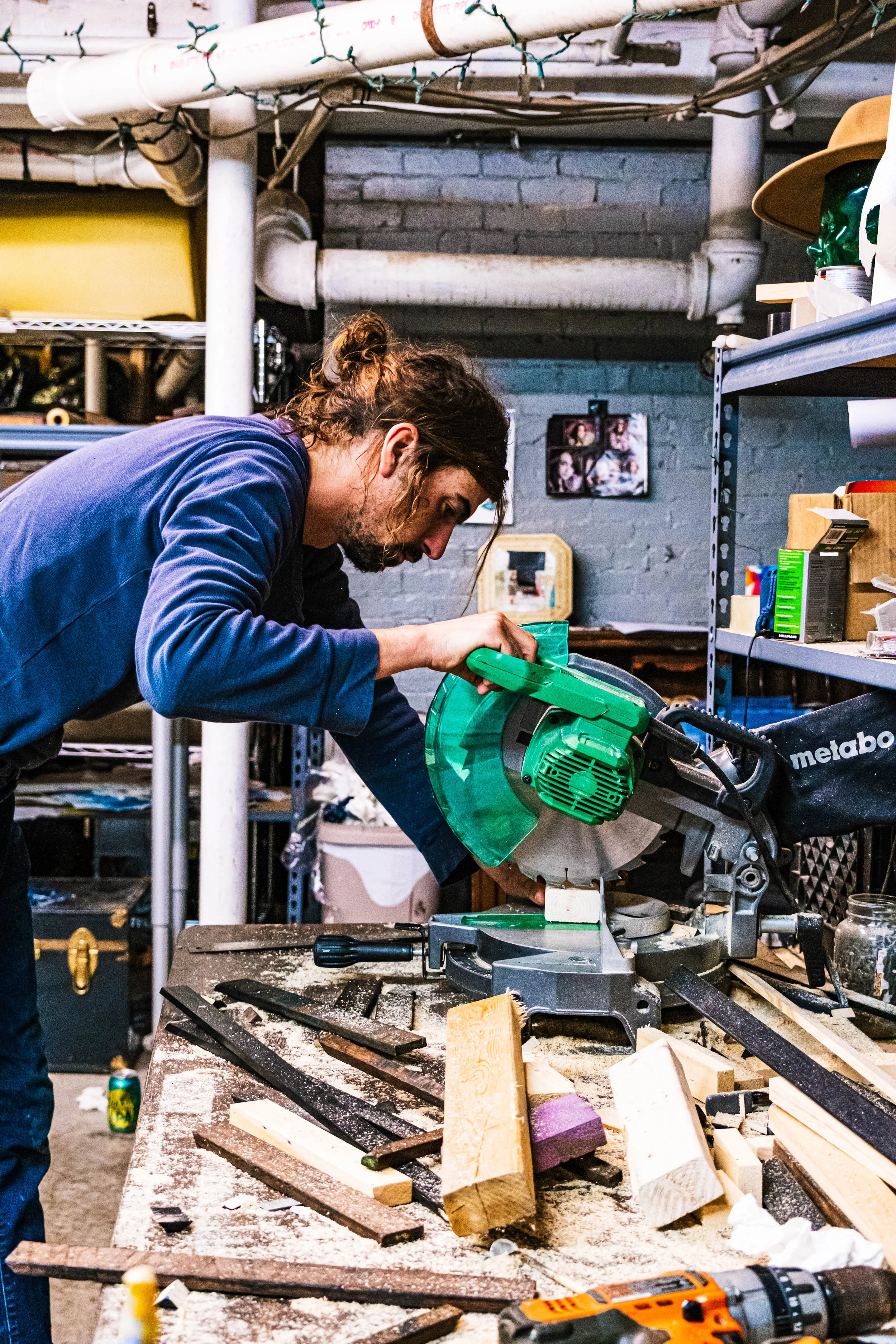Through archival imagery, historic printing processes and modern design, we produce unique, finely made art and murals in two distinct mediums.
Cyanotype Process









Why the Blue?
At Ramble More we believe in using innovation to mix contemporary design tools with antiquated making processes. Thus we employ the cyanotype – an alternative photographic printing process dating back to the 1840’s – also known as the “Blue Print”. Cyanotypes have been used for almost 200 years by architects, botanists and photographers alike, and here at Ramble More we are creating some of the largest negative-based cyanotypes in the world.
Fabrics are chosen and hand coated in a light sensitive chemistry. They are then exposed in UV (sun) light using large format negatives to create the image. Fabrics are then developed in a water bath using nontoxic chemicals. Finally, the prints are stretched and finished or framed as desired. Ask about our different framing options!
CHEMISTRY
First we mix two parts non-toxic chemicals and water to create a light-sensitive solution. We then coat our fabric in this solution to prepare it for exposure.
EXPOSE
We then place a negative directly onto our fabric coated with light-sensitive solution and expose it to UV light.
DEVELOP
We develop the exposed fabric in a simple bath of water and hydrogen peroxide to produce the desired image onto our products.
CONSTRUCT
Finally we stretch our printed fabric and encase in an artist made frame.
Wheat-paste Process












The wheat-paste process has been used for centuries to adhere advertisements, propaganda, and artwork to walls. We use wheat-pasting to create murals that have unique topographies – they are not flat panels on a wall but objects with texture. Our wheat-pasted murals are created by printing imagery on very thin paper. The prints are then adhered to a surface using a glue that we make by boiling together flour and water, which is hand-brushed over the prints, giving them their characteristic wrinkles and furrows. Each piece is sealed with varnish for protection and longevity. Wheat-paste murals are finished with hand painted or distressed trims, as best suits the project. Wheat-paste murals are offered in any size, black and white or full color.
Print imagery on very thin paper.
CONCOCT
make glue by boiling together flour and water
ADHERE
adhere imagery to a surface by hand brushing the glue over the prints
SEAL
seal the final piece with varnish for protection and longevity.









